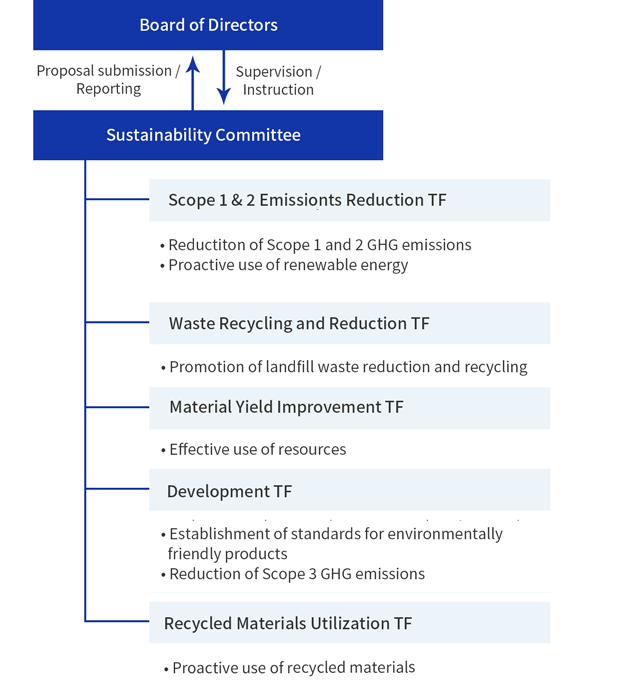Environmental Policy & Implementation Structure
Policy
In accordance with its Corporate Philosophy, Alps Alpine has established the company’s environmental policy.
Environmental Policy
Based on our corporate philosophy, we will contribute to the realization of a sustainable society by implementing initiatives for “realization of a decarbonized society”, “realization of a recycling-oriented society”, “chemical substance management”, and “biodiversity conservation”, namely through.
- Reducing greenhouse gas emissions related to our business activities and products.
- Promoting effective use and circulation of resources.
- Reducing negative impact of chemical substances on people and global environment.
- Reducing the burden on the natural environment as well as promoting biodiversity conservation.
Implementation Structure
Alps Alpine views environmental initiatives relating, for example, to decarbonization and realization of a circular society, as managerial challenges and pursues environmental management accordingly. This primarily entails supplying products that contribute to the environment and lowering the environmental impact of our business activities.
In addition to initiatives advanced by each function-based headquarters, activities are pursued by five environment-related working groups set up beneath the Sustainability Promotion Committee.

Environmental Management Systems
All Alps Alpine production facilities have established environmental management systems and acquired ISO 14001 certification. In Japan, we operate an integrated system covering all domestic facilities, including Alps Alpine Headquarters, branches, sales offices and other locations not engaged in production.
Initiatives addressing the key environmental challenges of decarbonization, realization of a circular economy and realization of coexistence with nature (chemical substance management and biodiversity) are implemented through environmental management systems. Companywide environmental targets for fiscal 2023 were approved by the overall environmental management representative. Departmental targets were then formulated under the supervision of environmental representatives at each site. Departments reviewed progress each quarter.